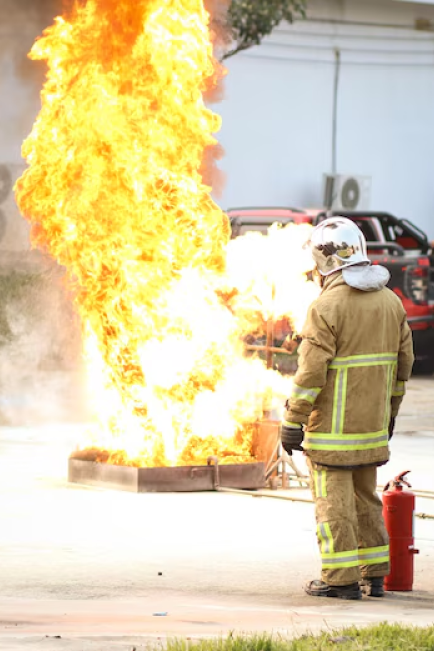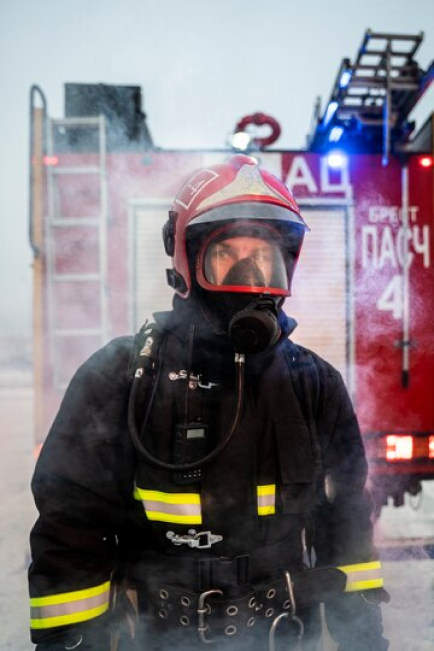Diploma in Fire and Safety Engineering: Training and Career Opportunities
- info@safetymastery.com
- +91 7200322134


Unlocking Opportunities with Diploma Programs in Fire and Safety Engineering
Unlocking Opportunities with Diploma Programs in Fire and Safety Engineering
A Diploma in Fire and Safety Engineering offers individuals specialized training in fire prevention, safety engineering principles, hazard control, and emergency response. By enrolling in a diploma program in fire and safety engineering, individuals can acquire the necessary knowledge and skills to pursue a successful career in ensuring fire safety in various industries. This comprehensive guide will explore the benefits of pursuing a Diploma in Fire and Safety Engineering, the training involved, and the diverse career pathways available for graduates in the field of fire and safety engineering.

Safety International Diploma
- Ofqual Regulated Qualifications London, UK
- GradIOSH/CertIOSH status from IOSH, UK
- TSP status from BCSP, USA
- Gateway to MSC in UK universities
Enhance your educational profile with an additional
one or two years of qualification.
one or two years of qualification.
Get Courses Details
Get Courses Details
Safety Diploma
- Government-Endorsed National Safety Diploma Program
- Qualify for registration at the Employment Exchange
- Attestation by the Ministry of External Affairs for those wishing to move abroad
- Eligible for membership with MIIRSM (IIRSM membership at discretion)
- Approved by the Government of India
- Enhance your educational profile with an additional one or two years of qualification
Benefits of Pursuing a Diploma in Fire and Safety Engineering:
- Specialized Training: Diploma programs in fire and safety engineering provide specialized training in fire prevention, safety engineering principles, risk assessment, and emergency response, preparing individuals for roles focused on fire and safety engineering.
- Career Advancement: Completing a Diploma in Fire and Safety Engineering can lead to career advancement opportunities in safety engineering, compliance, fire protection engineering, and emergency preparedness roles.
- Practical Skills: The program equips individuals with practical skills such as fire risk assessment, safety engineering design, emergency response planning, incident investigation, and safety audits, making them valuable assets in safety engineering roles.
- Industry Recognition: Holding a Diploma in Fire and Safety Engineering demonstrates proficiency in fire safety engineering practices, hazard control, regulatory compliance, and safety engineering design, gaining recognition from employers and safety professionals.
- Enhanced Safety Engineering: Graduates of Fire and Safety Engineering Diploma programs play a crucial role in designing and implementing safety engineering solutions, promoting fire safety awareness, and ensuring the safety of individuals in various settings.

Training Involved in Fire and Safety Engineering Diploma Programs:
- Fire Prevention Engineering: Learning fire prevention engineering strategies, fire hazards identification, fire protection systems, and fire prevention engineering design.
- Safety Engineering Principles: Understanding safety engineering principles, risk assessment methodologies, safety engineering design standards, and safety measures implementation.
- Emergency Response Engineering: Developing emergency response engineering plans, designing emergency response systems, coordinating emergency responses, and training staff on emergency protocols.
- Safety Engineering Regulations: Knowledge of safety engineering regulations, codes, standards, legal requirements, and compliance measures related to safety engineering practices.
- Incident Investigation Engineering: Investigating safety incidents from an engineering perspective, analyzing root causes, determining engineering failures, and implementing corrective actions to prevent future incidents.
- Safety Engineering Audits: Conducting safety engineering audits, assessing safety engineering risks, identifying engineering deficiencies, and recommending engineering improvements to enhance safety engineering measures.
Career Pathways After Completing a Diploma in Fire and Safety Engineering:
- Fire and Safety Engineer: Designing fire safety systems, conducting safety engineering assessments, ensuring compliance with safety engineering regulations, and implementing safety engineering solutions.
- Safety Engineering Specialist: Providing expertise in safety engineering practices, conducting safety engineering risk assessments, developing safety engineering plans, and training staff on safety engineering protocols.
- Fire Protection Engineer: Designing fire protection systems, conducting fire protection engineering assessments, developing fire protection engineering plans, and ensuring effective fire protection engineering measures.
- Safety Engineering Consultant: Offering specialized safety engineering consulting services, conducting safety engineering assessments, advising on safety engineering strategies, and assisting organizations in improving safety engineering performance.
- Emergency Response Engineer: Designing emergency response systems, coordinating emergency responses to safety incidents, training staff on emergency response engineering protocols, and ensuring effective emergency response measures.

Enrolling in a Diploma in Fire and Safety Engineering provides individuals with specialized training, practical skills, and career opportunities in the field of fire and safety engineering. By pursuing a diploma program in fire and safety engineering, individuals can advance their careers, contribute to safety engineering awareness, and play a vital role in ensuring safety engineering excellence in various industries. Remember: a Diploma in Fire and Safety Engineering is not just an educational qualification—it’s a commitment to promoting safety engineering, protecting lives, and creating a safer environment for all.
